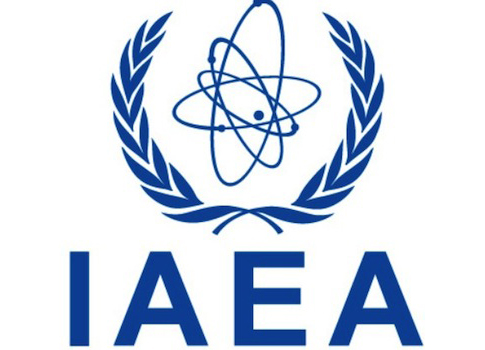CJ Ciaramella contributed to this report.
Hackers claim to have seized the information of nearly 200 scientists and officials affiliated with the International Atomic Energy Agency (IAEA), the world’s chief nuclear watchdog, according to a message posted Sunday on the website Cryptome.
A new hacker group calling itself Parastoo posted numerous email addresses purportedly found within the IAEA’s internal computer systems.
Parastoo is threatening to post personal information associated with these scientists and other personnel unless immediate action is taken by the IAEA to investigate Israel’s nuclear power plant, which some believe houses nuclear arms.
The effort appears to be in response to the IAEA’s aggressive investigation into Iran’s nuclear enrichment activity, which critics claim Iran is undertaking in pursuit of a nuclear weapon.
"We are reassuring IAEA that their critical information is safe with us as we are brothers, however, we can not guarantee the same if a Western-favored element entertains another sip of motorbike & magnetbomb [sic] cocktail," the hacker group said in a statement, referring to assassination operations believed to be carried out by Israel against Iranian nuclear scientists.
An IAEA spokesperson said that the organization is "not giving any on-record comment on this right now."
The leaked email addresses are associated with various academics and government officials across the globe, including one employee in the United States Department of Energy’s Office of Science.
Neither a DOE spokesperson nor the U.S. Mission to the IAEA responded to a Free Beacon request for comment about the incident.
Parastoo, which claims to be posting its "first public message," is demanding that the IAEA investigate Israel’s Negev Nuclear Research Center located near the southern city of Dimona.
Dubbing the site "beyond-harmful," Parastoo instructs that the individuals listed "sign a petition demanding an open IAEA investigation into activities at Dimona," according to the message.
"The above list who technically help IAEA could be considered a partner in crime should an accident happen there," the message continues. "In such case, many people would like to at least ask some questions, and Parastoo will publish whereabouts of every single one of these individuals alongside with bits of helpful personal and professional details."
The group is highly critical of Israel, accusing the Jewish state of terrorism and espionage.
"Israel owns a practical nuclear arsenal, tied to a growing military body and it is not a member of international respected nuclear, biochemical and chemical agreements," the group states.
The group alleges that Israel has "a history of attacking U.S. properties, Arab countries and assassination episodes of all stripes," according to the message.
Parastoo then delivers a warning: "You are not anonymous. Expect us."
The language used by Parastoo is similar to dispatches from Anonymous, an anarchic collective of "hacktivists" who engage in cyber-attacks against targets it finds objectionable.
Anonymous has also come out against Israel, criticizing its treatment of the Palestinians.
The hacker group threatened to launch a "cyber war" against Israel earlier this month in response to its most recent incursion into the Gaza Strip.
"Israeli Gov, this is your cyberwar [sic]," Anonymous said in a message posted on an Internet message board. "November 2012 will be a month to remember for the Israeli defense forces and Internet security forces."
It also leaked the personal information of 5,000 Israeli officials.
Israel’s nuclear program is highly secretive, and the country has not officially acknowledged having nuclear arms. It also has not signed the Nuclear Non-Proliferation Treaty (NPT), an international agreement aimed at stopping the spread of nuclear weapons.
It remains unclear exactly from where Parastoo’s attack originates, but Iran itself has been known to launch cyber attacks.
"The Iranian regime is set up to maximize plausible deniability," said Michael Rubin, a former Pentagon adviser on Iran and Iraq who has written about Iranian-backed vigilante groups. "That’s what makes Iranian cells abroad so dangerous: They can think for themselves and act on their own, all in pursuit with the regime’s goals."
"If anyone points the finger at Iran, the mullahs will shrug their shoulders, say ‘it wasn’t us’ and the CIA will testify there’s no smoking gun because they don’t have proof of direct orders," Rubin said.
The hacker group Parastoo additionally promised in its dispatch to become a permanent presence in the hacker community.
"You will be hearing game changing news from us frequently from now on," the group states.
